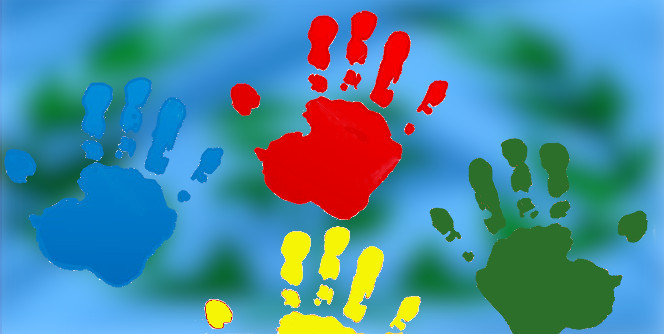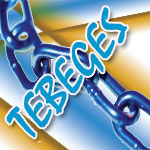Eritrean Politics: A Proto-Version Of Never Land

Theorists and practitioners always have different perspectives. Theorists think about synchronism or simultaneous occurrences and assume reliable approaches. Practitioners on the far side think about copout and worry about collisions. Unfortunately, these two sets of views are not entirely compatible; there are many subtle issues that arise in the process of reconciling them. Therefore, leaders should exhibits great wisdom and ability to bridge and reconcile the theory and practices of Eritrean politics even in the presence of failures.
The Eritrean political culture is driven by various “group interests” charged with absolute psychological forces who are on perpetual collision against each other. Informally, integrity requires fault-tolerant consensus. By that I mean, political organizations from a given input and fixed political values often collide and fall into unwanted political discourse. In such a scenario, instead of engaging in accusative mode, they should be pulled from the faulty political discourse by promoting computational power distribution to address grievances and the violation of equitable power-sharing.
This articles, however, will not focus on solution to the Eritrean predicament, rather, it’ll focus on the culture of the politics that hinders moving forward and its’ inherent refusal to grow up from a childhood politics, which I characterized as a proto-version of Never Land.
Incidentally, a few weeks ago I was provoked to write this painful argument, while, ironically, the people are entangled under the grip of a totalitarian regime. In recent weeks, there was a heated debate at “Awate forum” – mainly on personalities rather on substantive issues that matters to the Eritrean people. From the debate of personalities, I have got “two implicit statements” that are the subject the title of this article, (a) self-acclaimed ivory tower of knowledge, (b) the propensity of invoking the card of “victors verses the vanquished” from the history of the Eritrean civil war. Before I explain why I characterized it the way I did, (a) and (b) from the subtext of their arguments, a little historical background is in order from past encounters and how I addressed them.
In 2012 I was confronted by two individuals who never stopped bragging about their achievements and making ostentatious arguments. They didn’t have decency to even tell you that you are not in their league. I wrote an article in response to that in January 25, 2012 in an article entitle, “Don’t challenge me: lessons from the virtual world.” I find the article still relevant to my encounters in the awate forum – hence I am the link.
In 1898, Martin Lomasney, was quoted as saying regarding the importance of discretion that elevated and tipped his election to the Massachusetts General Court: “Never write if you can speak; never speak if you can nod; never nod if you can wink.” Some of my fellow citizen, still in their hissing strategic mode, never failed either to invoke the politics of “victor versus the vanquished” of the senseless civil war, or showing the attitudes of don’t question me you are not in my league, or tagging all kinds of political and non-political adjectives, or nodding approvals to incendiary attacks. Awate forum know them very well. But here are some of their “talking points”; you make your own judgments.
- Like the falul movements within ELF doing their destructive political activities.
- The hurt ELFites who were defeated by the EPLF.
- The point was to let you know that your standard is not my standard.
The undisclosed individuals, the fact they appeared to give a nod of tacit approval to the PFDJites, in the awate forum, will be enough to produce cries of rage and sellout branding from the PFDJ political camp. Such individuals are (a) a threat to justice seekers, (b) they are abject repudiation to the process of reconciliation, (c) they still believe on the practice of the “survival of the fittest” on Eritrean internal politics, and hence work hard on the cleavages of our society, (d) Their politics emanate from the authoritative centralized EPLF’s political philosophy, thereby they argue that there is no alternative other than the “reformed PFDJ” to run the Eritrean politics. As a result, the PFDJites would be happier with the comfort due to the blanket and tacit support they are gaining from unsuspecting Eritreans.
For the Justice seekers, instead of their conversation being accepted as a triumph of democratic conversation for “a hopeful Eritrea”, on the discourse to reconcile the divided politics, they are taken as sellouts at the gates of their perceived enemies, Ethiopia and the international community. Like the Ithaca hope, in the Cavafy’s poem, “(your) voyage is a long one, full of adventure, (and) full of discovery” to bring the reconciled Eritrea into reality. Feel the Ithaca in your minds, and eventually you will not find the sellouts at the gate of a reconciled nation, but you the justice’s seekers will occupy the center of public domain. “Do not fear them” as long as your thoughts are lofty, and as long as your rare emotions touches your spirit and your body, to sustain your long journey. It is a journey back to your home, after you are denied your citizenship and staying away from your sweet home. It is a journey of nostalgia where you will gain wisdom from the path of your history and the experience from the journey. This is a prolepsis of what you can anticipate in your journey.
Eritrean Politics Enters The Neverland
Neverland is a fictional place featured in the work of J.M.Barrie. It is the dwelling of Peter Pan and the lost boys. Neverland is a residence famously known to boys who wouldn’t grow up or refuse to. Neverland now become a metaphor for eternal childhood.
In psychology, maturity is the ability to respond to your environment (politically, socially) in an appropriate manner. Psychological maturity is deeply embedded on cognition, marked by shifting concrete thoughts to abstract thoughts through reflections and deductions. Though politics is usually grim and a dour struggle, it is certainly a sign of immaturity when it is changed to vitriolic political climates.
For decades, the Eritrean politics didn’t grow and mature; political consciousness didn’t grow beyond national consciousness. It didn’t move an inch outside the circle of nationalism. All the political mobilization is about nationalism and how to defend a sovereignty state. There is no new political impetus of nationalistic-democratic ideals in the mix that can inspire citizens for collective discussions, deepened through public input and guided by revolutionary intellectuals who are pro-democracy and justice. We are many people with a blend of many views, but we can’t move beyond the blinders of our perception and group politics. So, instead of making progress, we are regressing to children’s politics.
Political science explores the behavior of leaders, nature of political system, and functions of governments, in an attempt to ascertain the best practice for integrating new ideas and proposals to resolve conflicts and adjudicate justice. The Eritrean politics shouldn’t be only about the removal of the dictator, but also about changing the system and transforming Eritrea into a democratic- constitutional republic.
Tamp Down Emotions And Stick to Facts
Since politics is often so personally and emotionally charged, it is natural to seek out for people we agree with. That is rule number one when we engage in a debate or a discussion. Second, we need to be able to leave bias at the door of engagement. We should be open to information that may contradict our positions, enables us to see the complete picture, including the flaws in our positions. These two points are the key to polite political engagement. Of course, we don’t need to change our opinion just because there are flaws in our argument. We only have to be willing to acknowledge them. Polite political conversation should be able to model our discussion in order to reserve the right to change our minds.
Unfortunately, confirmation of bias is a tough beast to tamp down completely. When we debate about politics, we need to make sure the conversation is fact based. That doesn’t mean we cannot be passionate about our opinion. Here is what Alan Henry once said: “while facts and information are the components of calm and reasoned discussion; fervor is what leads to heated argument.” Hence, facts and reliable information are always demanded. I hate reductionist and oppose reductive account of the mind that captures only the low level explanations of perceptions; because they don’t include the asymmetric causal theory of reference and language of thoughts within the loop of the subject matter.
The deft and veiled debates of what should be the content based exchange, often change into an ad hominem attacks and indictment by innuendo, dodging at best their bullets in a cross wire fashion. However, in the right context, if we feel like engaging, fight fire with fire and reply with the right variant on the theme. The other alternative could be, as we may recall from our long-ago interlude with Plato, Socrates never failed to answer questions with a question. That could be another method of highly effective shield. But the question is: how do we build a knowledge based virtuous political community?
Aristotle in his Nicomachean Ethics described the role that “politics” and the “political community” must play in bringing about virtuous life and engagements. According Aristotle, Ethics and politics are practical sciences that deal with human beings as moral agents. While Ethics is primarily about the actions of human beings as individual, politics is about the actions and engagements of human beings in their communities. In Aristotle’s mind virtuous lives and engagement are based on the three categories of knowledge, namely, the theoretical knowledge, productive knowledge, and practical knowledge. While theoretical knowledge aims at contemplation on what virtuous community will be, productive knowledge aims at creating the virtuous community, and practical knowledge aims on how virtuous community will engage in discipline in their practical lives.
Our political community are not built or structured in Aristotelian knowledge of virtuous political community, where ethics and politics interplay to influence each other to shape a virtuous and disciplined Eritrean political community. Until the Eritrean political community is structured in a way our engagement be reformed in an ethical disciplined manner, it will never evolve to grow and mature; thereby transform the Eritrean Political landscape to challenge the international, regional, and domestics politics we are entangled in. It is high time that the political community is restructured in a way to discipline ourselves and act together to save our people from the deep crises of epic proportions.



Awate Forum